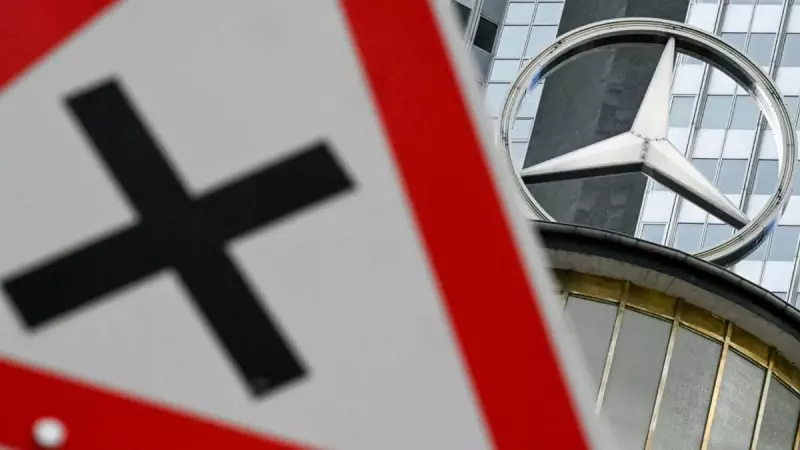
Stuttgart-based luxury car manufacturer Mercedes-Benz has reported a staggering 30% drop in second-quarter profits, sending shockwaves through the automotive industry. The German automaker's earnings plunged to €2.9 billion, down from €4.1 billion during the same period last year.
China Crisis: The Main Culprit
The dramatic decline is primarily attributed to weakening demand in China, Mercedes-Benz's largest market. Chinese consumers are increasingly opting for domestic electric vehicle brands, creating intense competition for foreign automakers. Market share for German luxury brands has been steadily eroding as local manufacturers like BYD and Nio gain traction with more affordable and technologically advanced electric vehicles.
European Tariffs Add to Woes
Compounding the China problem, new European Union tariffs on Chinese-made electric vehicles have created additional headwinds. While designed to protect European automakers, these tariffs are affecting Mercedes-Benz's operations and supply chains. The company manufactures some models in China for export to Europe, making it vulnerable to the new trade barriers.
Industry-Wide Challenges
Mercedes-Benz isn't alone in facing these challenges. Other German luxury automakers including BMW and Audi are experiencing similar pressures. The entire automotive sector is grappling with:
- Rising production costs
- Supply chain disruptions
- Intensifying EV competition
- Changing consumer preferences
Strategic Shifts Ahead
In response to these market pressures, Mercedes-Benz is accelerating its electric vehicle strategy and considering production adjustments. Company executives have indicated they may need to rethink their China approach and potentially shift more manufacturing to European facilities to avoid tariff impacts.
The profit warning has already affected investor confidence, with Mercedes-Benz shares declining following the announcement. Automotive analysts suggest the company may need to implement cost-cutting measures and potentially revise its full-year earnings forecast.
This development highlights the broader challenges facing European automakers as they navigate the transition to electric vehicles while maintaining their competitive edge in key global markets.





